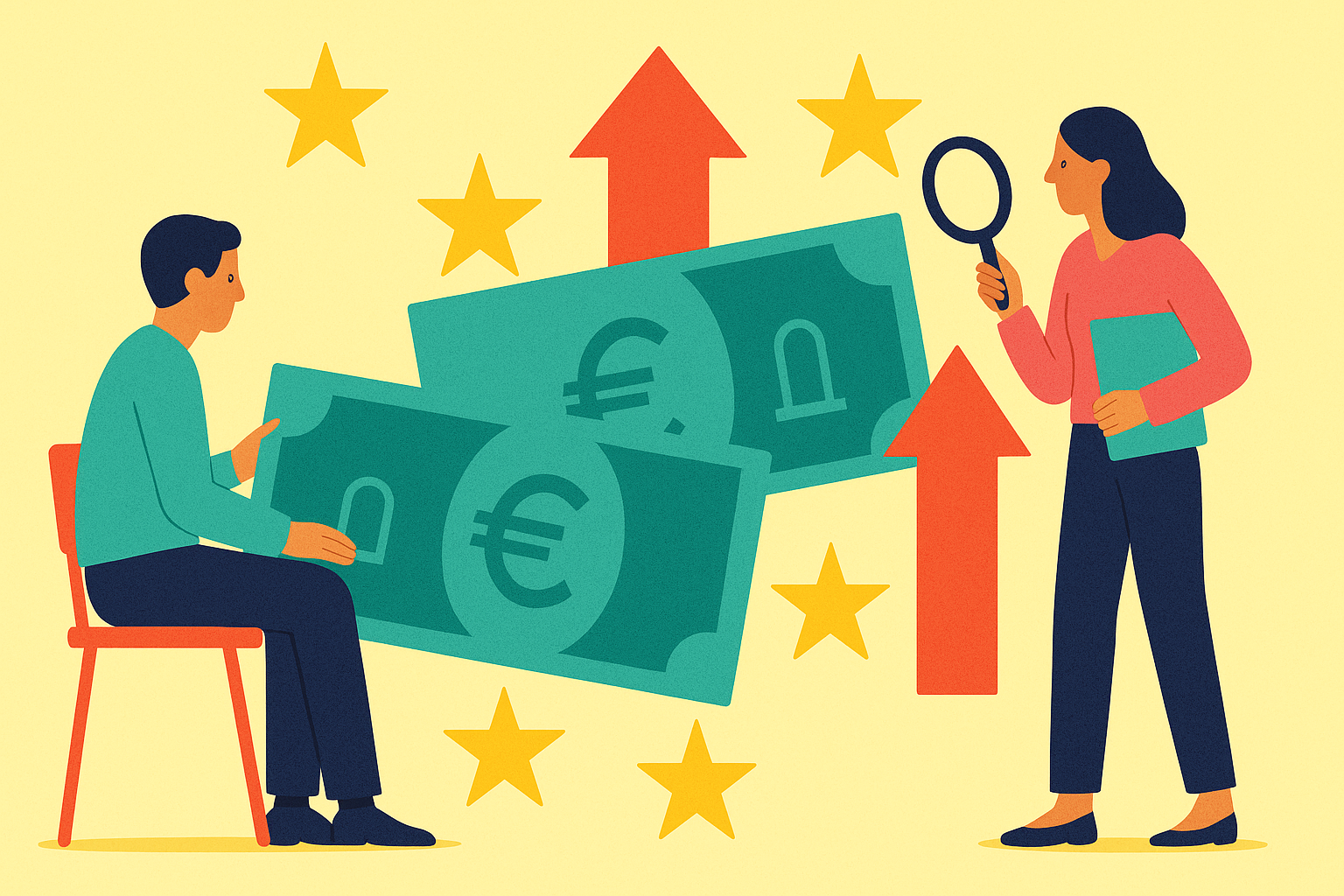Eurozone News
LAST UPDATE: July 29, 2025
Euro suffers steepest one-day drop against dollar since May after US‑EU deal
After the U.S.–EU trade agreement, the euro dropped sharply—its biggest one-day decline against the dollar since May—prompted by market concerns over trade volatility.
Insight
Currency markets are reacting swiftly to trade policy shifts; the euro’s drop reflects investor caution amid uncertainty around tariffs and economic prospects.
Rise of stablecoins could undermine euro area monetary policy, ECB warns
ECB adviser Jürgen Schaaf warned that proliferating U.S. dollar-linked stablecoins (e.g. Tether, Circle) could weaken the bank’s control over interest rates and money supply, and erode financial sovereignty.
Insight
The warning signals Europe’s concern over monetary vulnerability amid digital currency growth. It underscores urgency for the digital euro initiative to maintain ECB policy autonomy.
Kazimir Sees ECB Holding Rates in September in Absence of Shock
ECB Governing Council member Peter Kazimir said interest rates likely remain unchanged in September unless there’s a fresh economic shock.
Insight
The cautious posture suggests patience amid uncertainty—ECB prefers data-based decisions over reactive cuts while awaiting further macro signals.
Germany’s Merz says he did not expect better EU‑US trade deal, German economy will suffer
Chancellor Merz criticized the recently concluded trade deal, warning that the remaining 15% tariff on EU goods, particularly autos, will cause significant harm to Germany’s export-driven economy.
Insight
The measured critique reveals internal EU tension: while avoiding escalation, Germany accepts a compromise that still imposes painful constraints on its core industries.
German government to approve 2026 budget with record investment and borrowing surge, sources say
Reuters
Germany plans a 2026 budget with €126.7 bn in investment and €174.3 bn in new borrowing, enabled by a €500 bn infrastructure fund and defense exemptions to its debt brake.
Insight
The move marks a major fiscal shift, breaking from austerity to stimulate growth and strategic resilience amid geopolitical tensions.
Germany plans to cut energy costs by 42 billion euros, draft budget shows
Reuters
Draft budget outlines €42 bn in relief for energy costs between 2026–29, including €26 bn for electricity transmission, €3 bn for industrial relief, €6.5 bn for grid fee subsidies.
Insight
Energy cost mitigation complements investment push, helping shield households and businesses from inflation and high utility bills.
Ireland’s Economy Just Shrank for the First Time Since 2023
Ireland’s GDP fell approximately 1% in Q2 2025—the first contraction since 2023—attributed largely to external trade disruptions and tariff headwinds.
Insight
The contraction exposes Ireland’s heavy reliance on export-led, FDI-driven growth, and its vulnerability to U.S.–EU tariff volatility.


